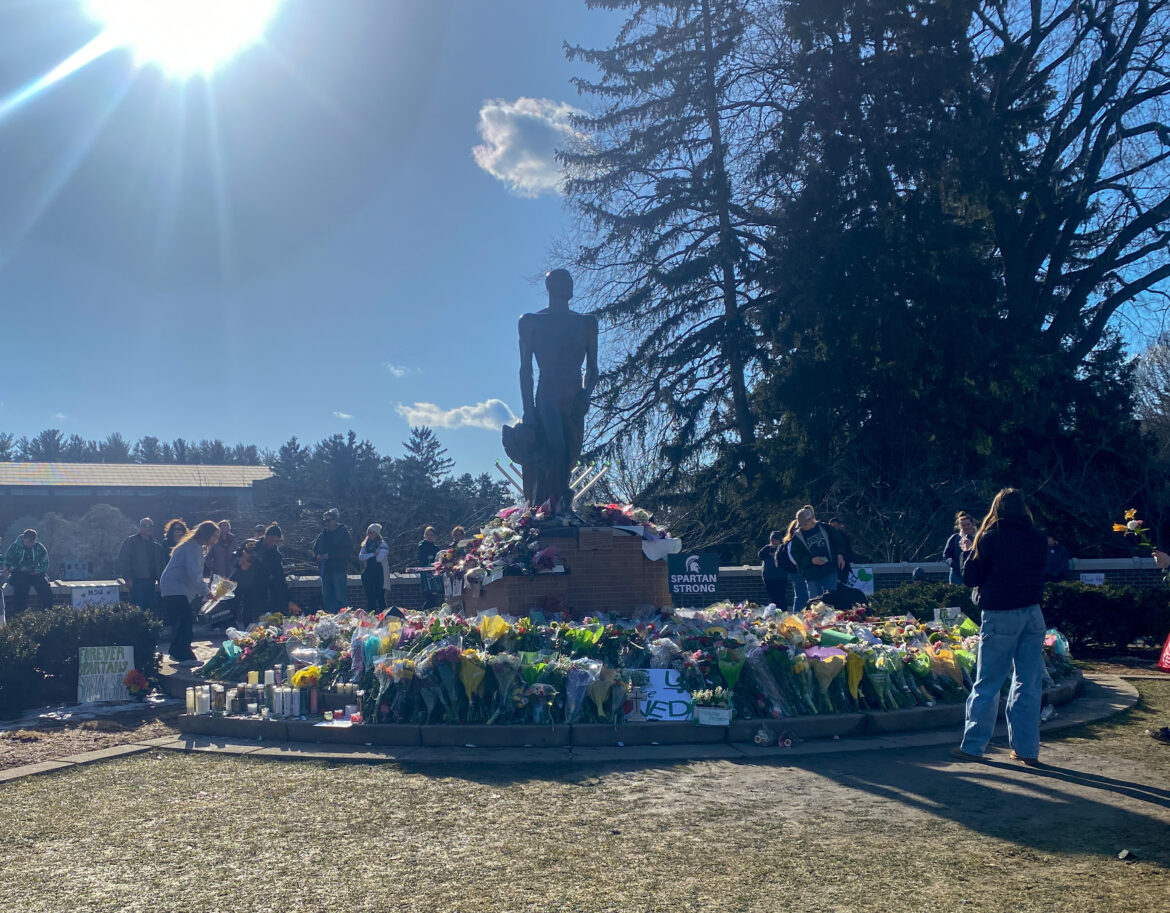EAST LANSING, Mich.—On the night of Feb. 13, the lives of thousands of students, parents and employees changed, including mine.
That night I was heading back home from a meeting when I received several calls from friends and family about an active shooter on campus. Students had received “shots fired” notifications before, alerting them to violent crime nearby campus, but never before had we received notifications for an incident on campus. I had never received a message from the university telling me and thousands of others to “run, hide, fight”.
Unfortunately, this is the 67th mass shooting to happen in 2023, according to the Gun Violence Archive, but I never thought it would happen at Michigan State University. I never thought it would happen to me.
My mom, Jamie Rossow, a 1992 alumna of Michigan State University, messaged me with fear, wondering if I and my older brother, Will Rossow, were safe.
“I was listening to the police scanner, so probably not the best way to get information because it was fast and not often accurate, so it was a little bit terrifying,” said Rossow. “It was very unknown what was happening. How many shooters? Where were they?”
While she was at home listening to the police scanners along with thousands of others, we were barricaded in the basement of our off-campus home. All the lights remained off for the night as we listened to the police scanner and hoped for a quick end.
The police scanner ultimately scared me more than it helped. I would shake uncontrollably when certain locations were mentioned. I was glued to my phone, checking in on all of my friends to see if they were safe.
At the same time, MSU student Hal Schnell was barricaded in the bathroom of his dorm room in Mcdonel Hall with five other students.
“My experience was frightening. My friends and I were locked in our bathroom, we barricaded the doors,” said Schnell. “We were trying to keep each other calm and let each other know we were safe.”
The terrified community of East Lansing got a sense of relief four hours later when the suspect was finally found.
“I think the fact that they finally caught him, not necessarily that he was dead but that he was caught and that everybody was safe again, so that was a relief,” said Rossow.
Once the remain-in-place order was lifted, my friends began to leave campus and drive an hour back to their respective hometowns. Many other students did not have the luxury to leave.
The terror lasted for four hours that night, but the trauma is on-going.
The days following allowed for everyone to truly grasp the events that occurred and come to terms with the tragedy.
“I think finding out that Brian [one of the victims] was one of my best friends’ nephews,” said Rossow, about what she struggled with. “I think it puts it more into focus on that size of campus. When you hear that three kids were shot and killed, you automatically are thinking, ‘What are the odds that I’m going to know them?’ Because it’s not a small campus.”
Schnell also struggled with coming to terms with the deaths of the three students: Brian Fraser, Arielle Anderson and Alexandria Verner.
“You feel for them and their families and think about that tragic loss that they experienced,” said Schnell.
I struggled to accept that a place that I love and that I call home is forever changed. MSU is cherished by so many students, and it is difficult to think that it is not as safe as we once thought.
The events of Feb. 13 have created a heavy push for change.
An email from Interim President Teresea K. Woodruff stated that academic buildings that were previously open in the evening hours will now require a key card to scan in. Locks will begin to be installed on classroom doors and have a goal to be completed by Fall 2023, and additional cameras around campus will be installed. There will also be Active Violent Intruder Training that the university will require “by the beginning of the next academic year for all employees and students.”
In the aftermath of the shooting, the university held several events to help the community, such as Spartan Sunday, service dogs, mental health support and listening centers. Spartan Sunday was held to comfort students and families after the tragedy. Volunteers gave out goody bags while moms gave out “free mom hugs”. Thousands of dogs and their owners showed their love and gave comfort to people there.
“I like the events that Michigan State is holding for all the students and faculty to help support them, and also the professors are changing curriculums to try and support the students as best as possible,” said Schnell.
As the Spartan community mourns and heals, I find it beautiful that a tragedy has made so many unite. We are, and will remain, Spartan Strong.
MSU mental health services can be found at https://caps.msu.edu.
GoFundMe pages for MSU, the victims, and the injured can be found at https://www.gofundme.com/c/act/michigan-state-shooting-help
